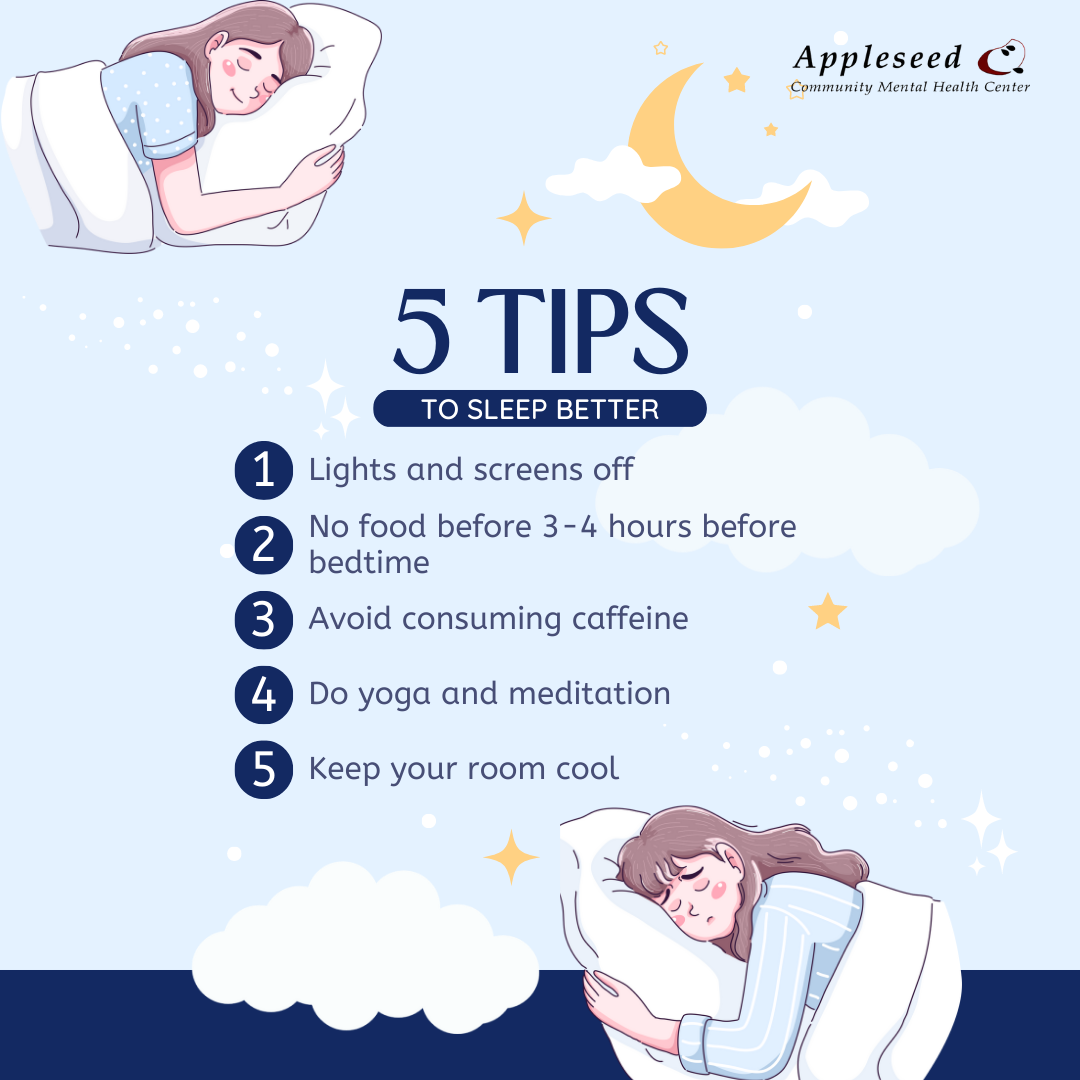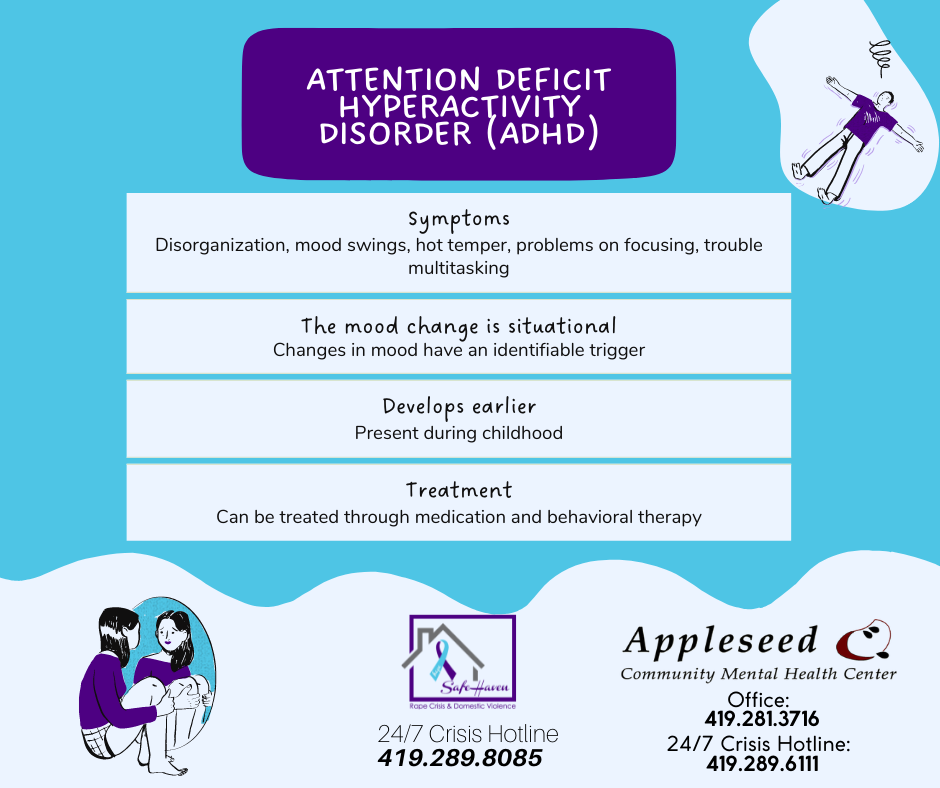Blog
Blog posts tagged with "mental health"
Improving Your Sleep For Mental and Emotional Resilience
According to the Sleep Foundation, there is a bidirectional relationship between sleep and mental health. Each affects the other.
October is ADHD Awareness Month
Like any other challenge in life, ADHD can be overcome with the right interventions, training, patience, persistence, and love. Families that have a child who meets the criteria, need support, understanding, and skill building. Early intervention can make a huge difference so reach out to your pediatrician or trusted mental health provider and get the help you need.
Journaling for Mental Health
Journaling is one of the best tools you can put in your mental health toolbox. Researcher Silvia Bastos writes, “Many of us, when we face anxious thoughts, try to deny them — push them away, and think of something else.” and “You probably know how it feels to lie in bed for hours unable to sleep because you’re worried about problems, commitments, or the future.”
Sleep is Essential to our Mental Health
Working on your sleep hygiene is something to take seriously and be intentional about. According to Helpguide’s resource on getting better sleep, try to go to bed and get up at the same time every day. This helps set your body’s internal clock and optimizes the quality of your sleep. Choose a bed time when you normally feel tired, so that you don’t toss and turn.
Smarter Phones, Struggling Minds
A recent research study has found that over the past two years, as we try to cope with all of the disruptions and changes related to COVID-19, cell phone and social media use has skyrocketed. Social media is a way to stay in touch with friends and family. Owning and using a mobile phone is almost necessary in our culture with many occupations requiring smartphone accessibility. Sixty-nine percent of adults and 81% of teens use social media–so what does that mean for our brains?
This is World Kindness Week
Research shows that performing acts of kindness positively impacts mental health by increasing the neurotransmitters in the brain that make us feel satisfied and good: Acts of kindness can increase the hormone that makes us feel connected to each other and helps us trust each other, ”A study in the journal Integrative Psychological and Behavioral Science found that people who practiced a-kindness-mindset lowered their stress hormones by 23%. Try practicing random kind actions towards others every day and see what a difference it makes.
Appleseed Community Mental Health Center recognizes Mental Health Month by offering free events
Appleseed Community Mental Health Center (“Appleseed”) is offering FREE events throughout May aimed at reducing the impact of COVID-19 and other mental health stressors. You do not need to be a current or past client of Appleseed to benefit from these events!
Holistic Approach to Mental Health and Wellness
Mental health and wellness requires we take a holistic approach. As Mr. Miyagi said in the 1st karate kid movie, “our whole life is a balance”. To be truly mentally healthy, we need to make sure that we are taking care of our mind, body and spirit. We do that through activities and exercises that connect us to those domains of our life. For instance, reading strengthens and relaxes our mind, hiking strengthens our body, and faith practices strengthen our spirit. By using a holistic approach we can handle life and stresses much more effectively. Holistic Behavioral Healthcare is part of our mission at Appleseed.
Mental Health Spring Cleaning
Spring is here. As we watch the crocus poke through the ground and enjoy more and more daylight, it's a good time to recommit ourselves to our mental health care. Do some mental health spring cleaning. Identify a habit that prevents you from being your best. It could be the habit of criticizing others or negative self-talk. Whatever it is, commit yourself to being self-aware and to quickly replacing the behavior with a healthy alternative. Plan ahead and be ready. Speak a word of praise instead of criticism or replace negativity with encouragement. With a steady effort, you can change that habit that is holding you back.
February is Black History Month
February is Black History Month, and I want to highlight important ideas from Black leaders that support your mental health. Martin Luther King Junior said, “I refuse to accept the view that mankind is so tragically bound to the starless midnight of racism and war that the bright daybreak of peace and brotherhood can never become a reality…. I believe that unarmed truth and unconditional love will have the final word.” Finding ways to build honest and supportive relationships is one of the most important things you can do for your mental health and to increase your feelings of wellbeing.
Gratitude and Mental Health
This is Thanksgiving week. Gratitude is the quality of being thankful and the readiness to show appreciation and return kindness. Harvard Medical School writes that “The word gratitude is derived from the Latin word gratia, which means grace, graciousness, or gratefulness. Gratitude encompasses all of these. Gratitude is a thankful appreciation for what you receive, tangible or intangible. With gratitude, people acknowledge the goodness in their lives. In the process, people usually recognize that the source of that goodness lies ...at least partially... outside themselves. Gratitude also helps people connect to something larger than themselves.
Homelessness and Hunger Awareness Week (November 15-22)
This week is Homelessness and Hunger Awareness Week. Mental health is an essential component of your overall life experience. It impacts all domains of life including physical, spiritual, vocational, and relational. One area of life where a person’s mental health has a big impact is in housing. Surveys indicate that close to half of people who are homeless have a mental health diagnosis. Often depression, anxiety or post-traumatic stress can underlie the series of life occurrences that lead a person to homelessness. I would encourage all of us to think of the ways in which we can help those experiencing housing insecurity.
International Stress Awareness Week
One international study published just this month reports that people who had a strong sense of meaning and purpose in their life were more resilient, especially in relation to Covid-specific stress. What are some things that give us a sense of purpose? Caring for someone who needs your help, an activity or hobby that is meaningful such as gardening or cooking, or being part of a group that connects you with others such as a service club or a church. So if you find yourself stressed don't do less, do more of what gives you a sense of purpose.










